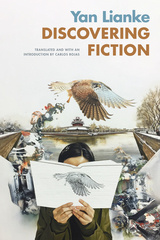
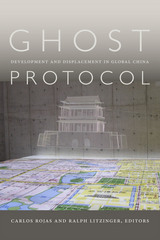
Contributors. Yomi Braester, Alexander Des Forges, Kabzung, Rachel Leng, Ralph A. Litzinger, Lisa Rofel, Carlos Rojas, Bryan Tilt, Robin Visser, Biao Xiang, Emily T. Yeh
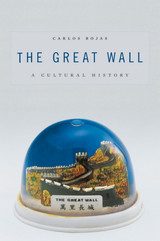
Carlos Rojas presents a sweeping survey of the historical and political significance of one of the world’s most recognizable monuments. Although the splendor of the Great Wall has become virtually synonymous with its vast size, the structure’s conceptual coherence is actually grounded on the tenuous and ephemeral stories we tell about it. These stories give life to the Wall and help secure its hold on our collective imagination, while at the same time permitting it to constantly reinvent itself in accordance with the needs of each new era.
Through an examination of allusions to the Wall in an eclectic array of texts—ranging from official dynastic histories, elite poetry, and popular folktales, to contemporary tourist testimonials, children’s songs, and avant-garde performance art—this study maps out a provocative new framework for understanding the structure’s function and significance.
This volume approaches the Wall through the stories we tell and contends that it is precisely in this cultural history that we may find the Wall’s true meaning, together with the secret of its greatness.
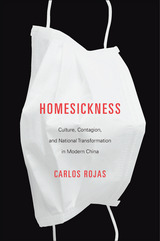
The collapse of China’s Qing dynasty coincided roughly with discoveries that helped revolutionize views of infectious disease. Together, these parallel developments generated a set of paradigm shifts in the understanding of society, the individual, as well as the cultural matrix that mediates between them. In Homesickness, Carlos Rojas examines an array of Chinese literary and cinematic tropes of illness, arguing that these works approach sickness not solely as a symptom of dysfunction but more importantly as a key to its potential solution.
Rojas focuses on a condition he calls “homesickness”—referring to a discomfort caused not by a longing for home but by an excessive proximity to it. The product of a dialectics of internal alienation and self-differentiation, this inverse homesickness marks a movement away from the “home,” conceived as spaces associated with the nation, the family, and the individual body. The result is a productive dynamism that gives rise to the possibility of long-term health. Without sickness, in other words, there could be no health.
Through a set of detailed analyses of works from China, Greater China, and the global Chinese diaspora—ranging from late-imperial figures such as Liu E and Zeng Pu to contemporary figures such as Yan Lianke and Tsai Ming-liang—Rojas asserts that the very possibility of health is predicated on this condition of homesickness.
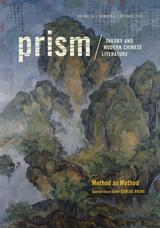
Contributors. Yomi Braester, Hsiao-hung Chang, Margaret Hillenbrand, Chun-kit Ko, Belinda Kong, Petrus Liu, Laikwan Pang, Christopher Rea, Carlos Rojas, Shuang Shen, Robin Visser, Lorraine Wong

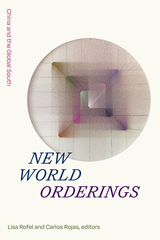
Contributors. Andrea Bachner, Luciano Damián Bolinaga, Nellie Chu, Rachel Cypher, Mingwei Huang, T. Tu Huynh, Yu-lin Lee, Ng Kim Chew, Lisa Rofel, Carlos Rojas, Shuang Shen, Derek Sheridan, Nicolai Volland

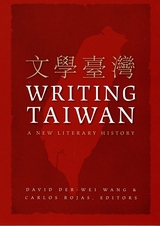
Because the island of Taiwan spent the first half of the century as a colony of Japan and the second half in an umbilical relationship to China, its literature challenges basic assumptions about what constitutes a “national literature.” Several contributors directly address the methodological and epistemological issues involved in writing about “Taiwan literature.” Other contributors investigate the cultural and political grounds from which specific genres and literary movements emerged. Still others explore themes of history and memory in Taiwan literature and tropes of space and geography, looking at representations of boundaries as well as the boundary-crossing global flows of commodities and capital. Like Taiwan’s history, modern Taiwan literature is rife with conflicting legacies and impulses. Writing Taiwan reveals a sense of its richness and diversity to English-language readers.
Contributors. Yomi Braester, Sung-sheng Yvonne Chang, Fangming Chen, Lingchei Letty Chen, Chaoyang Liao, Ping-hui Liao, Joyce C. H. Liu, Kim-chu Ng, Carlos Rojas, Xiaobing Tang, Ban Wang, David Der-wei Wang, Gang Gary Xu, Michelle Yeh, Fenghuang Ying
READERS
Browse our collection.
PUBLISHERS
See BiblioVault's publisher services.
STUDENT SERVICES
Files for college accessibility offices.
UChicago Accessibility Resources
home | accessibility | search | about | contact us
BiblioVault ® 2001 - 2024
The University of Chicago Press









